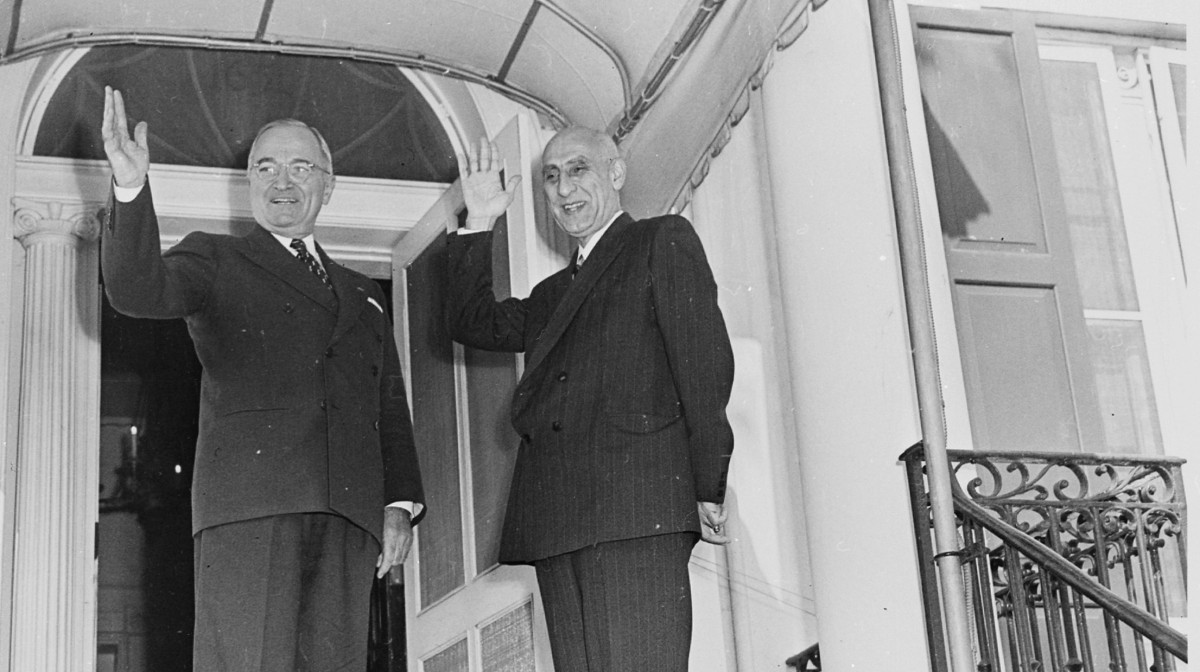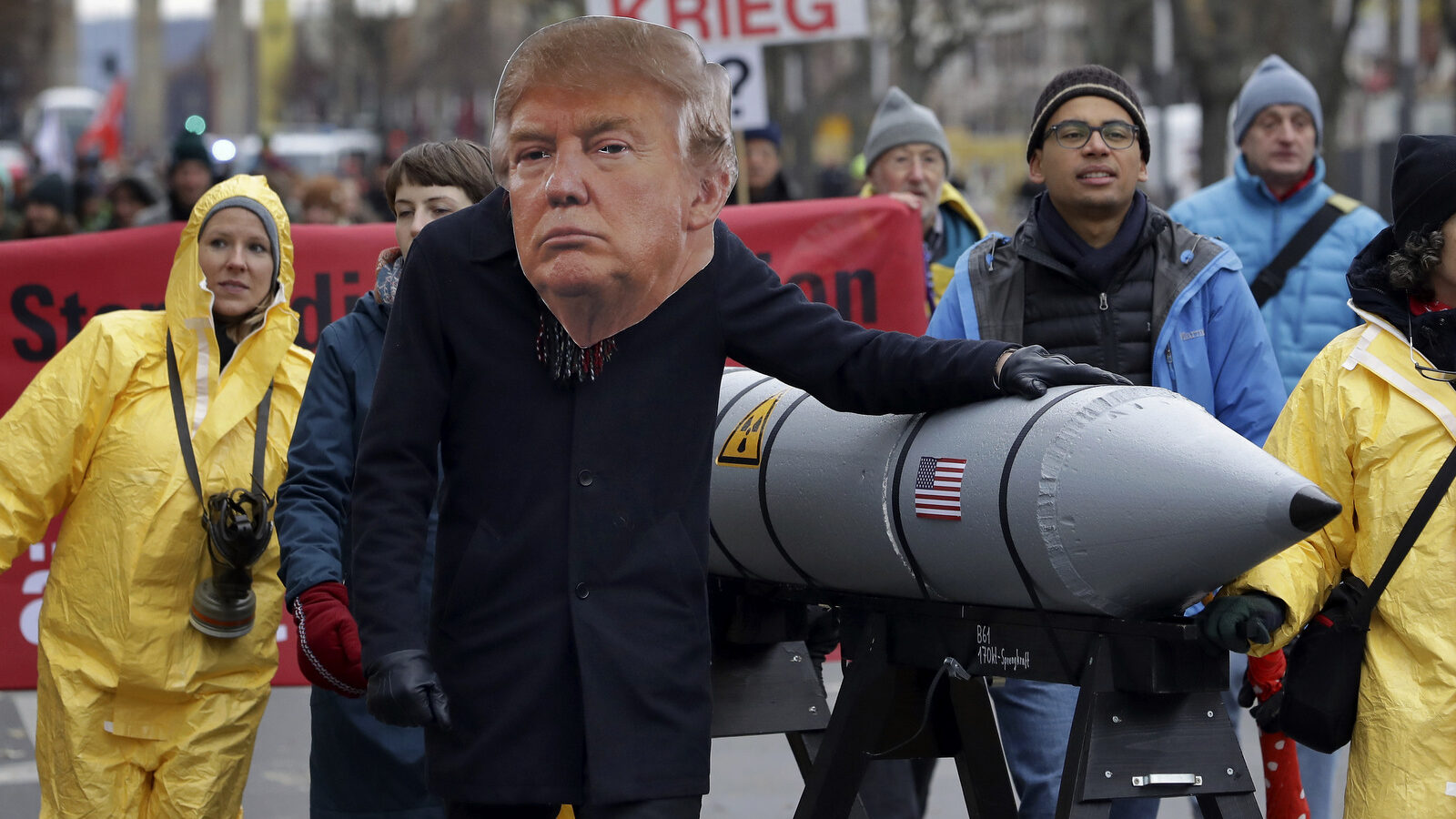WASHINGTON — The United States’ invasion of Iraq was but a few months away when Luiz Inácio Lula da Silva — or Lula, as he is commonly known — was sworn in as president of Brazil, Latin America’s largest country. Big things were expected of the plain-spoken former lathe-operator who’d lost a pinky finger in a showdown with a hydraulic press and who promoted a solidly progressive agenda intended to narrow the country’s yawning inequality.
When a progressive, black-majority governing party had come to power in South Africa nearly a decade earlier, one of its first acts was to dismantle the nuclear arsenal it had inherited from the white-settler regime known as apartheid, and so it rattled the Western media when Lula’s Workers Party announced the unthinkable: no country in Latin America had nuclear weapons and Brazil intended to be the first.
In January of 2003, the minister of science and technology, Roberto Amaral, told Brazilian reporters:
Brazil is a country at peace, that has always preserved peace and is a defender of peace, but we need to be prepared, including technologically. We can’t renounce any form of scientific knowledge, whether the genome, DNA or nuclear fission.”
Government spokesmen quickly tried to put the genie back in the bottle and explained that Amaral’s remarks did not reflect the new administration’s official policy. Said one spokesman at a press conference:
The government favors research in this area solely and exclusively for peaceful purposes.”
But Amaral’s pronouncements were entirely consistent with earlier remarks made by Lula as a candidate, in which he criticized the Nuclear Nonproliferation Treaty (NPT) as unfairly favoring the U.S. and other nations that already had nuclear weapons, at the expense of nations threatened by the West’s military advantage. In the bluntest terms, he asked rhetorically:
If someone asks me to disarm and keep a slingshot while he comes at me with a cannon, what good does that do?”
The prevailing nuclear double-standard
Lost in the debate over U.S. President Donald Trump’s announcement Tuesday that his administration planned to walk away from an agreement limiting Iran’s nuclear ambitions is a fundamental question: If the United States has nuclear weapons, why can’t Iran or North Korea or yes, even Brazil possess their own?
However awkward his syntax, Lula’s metaphor reflects the widely-held belief in the global South that the political class in the U.S.is both a Dr. Strangelovian madman and a common burglar intent on maintaining–by hook or by crook– its position as the world’s sole superpower. It is lost on virtually no one in the developing world that in the years since the terrorist attacks of September 11, 2001, the U.S. has used the most implausible pretexts to effectively pillage Iraq and Libya.
North Korea has been spared similar treatment only because its nuclear capabilities act as a deterrent to U.S. aggression. Similarly, Syria, under the leadership of President Bashar al-Assad, has managed to turn back a CIA-engineered plot to overthrow him only with the help of Russia. And, with NATO amassing more munitions on the Russian border than at any time since the Third Reich, Russian President Vladimir Putin in March announced that scientists had developed and tested a new generation of nuclear warheads that cannot be intercepted.
Following the heated exchange between Trump and North Korean President Kim Jong-Un at last year’s United Nations General Assembly, one American businessman doing business in Ecuador told me:
North Korea would be a fool to get rid of its nuclear weapons when the U.S. clearly has its sights set on them. Disarmament in this day and age is like bringing a knife to a gunfight.”
Ironically, Iran’s nuclear program began in 1957 with the support and encouragement of the Eisenhower White House and it was, in fact, suspended by the very same Islamic Revolution that drove the despotic Mohammad Reza Shah Pahlavi from power in 1979. The first Supreme Leader of the Islamic Republic, Ayatollah Ruhollah Khomeini, banned the production of chemical weapons during the Iran-Iraq war, a prohibition that was affirmed only five years ago by Ayatollah Ali Khamenei.
Iran resumed its plan to construct nuclear power plants sometime in 2002, but the NPT requires signatories to allow inspectors with the International Atomic Energy Agency access to its enrichment facilities. The IAEA has never found Iran non-compliant, but both the Bush and Obama administrations have found otherwise.
Conversely, neither Bush nor Obama nor even Trump has anything to say about Israel’s nuclear arsenal, which consists of as many as 400 atomic warheads, by some estimates. But unlike Iran, Israel refuses to sign the NPT, and has criminalized any public mention of its nuclear arsenal, going as far as to jail for 18 years whistleblower Mordechai Vanunu, a former nuclear engineer.
Neither are two U.S. allies, India and Pakistan, signatories to the NPT, reinforcing the widely-held belief among developing countries that Trump’s antagonism of Iran is unprincipled, and grounded in the historically adversarial relationship between the U.S. and sovereign nations that articulate independent viewpoints.
The fire next time

Declassified documents released last year shone a light on the CIA’s role in the 1953 coup that removed from power the liberal reformer, Iranian Prime Minister Mohammad Mossadegh. That power-play set in motion a series of events that culminated in the 1979 revolution and Trump’s withdrawal from the nuclear pact Tuesday afternoon. Noah Gimbel, an independent journalist who has covered the Middle East extensively, said in a 2012 interview:
Not only does Israel have nuclear weapons outside the scope of the NPT, but India has also developed and weaponized its nuclear program with the full support of the United States. The double standard and the hypocrisy of the U.S. and Israel on the issue of the Iranian nuclear program could not be any clearer.
But I would go further than to call it a matter of alliance with the United States: What Iran potentially poses is a challenge to the hegemony of the United States. Indeed, Israel does not have a formal treaty of alliance with the U.S., but the national interests of the two states tend almost unanimously to overlap. On the other hand, Iran has resisted U.S. dominance in the region, and is thus literally surrounded by U.S. military bases.
The U.S. effected regime change in Iran once with the overthrow of Dr. Mossadegh in 1953 for the sole reason of avoiding nationalization of the Anglo-Iranian Oil Company. Back then they said Iran had gone communist; today they say Iran supports terrorism and seeks nuclear weapons. It’s a matter of narrative convenience to isolate and intimidate Iran into changing course either voluntarily or by force.”
That same year, a conservative scholar who worked in the Reagan Administration confessed to me — over copious amounts of alcohol — that the political class in the U.S. opposed Iran’s nuclear ambitions for the same reason that white reactionaries fear African-Americans with guns: the fire next time.
“We can’t allow Iran to have nuclear weapons,” he said. “They know what we did to them.”
Top Photo | A protester wears a mask showing US President Donald Trump in Berlin, Germany, Nov. 18, 2017 during a demonstration against nuclear weapons near the Brandenburg Gate. (AP/Michael Sohn)
Jon Jeter is a published book author and two-time Pulitzer Prize finalist with more than 20 years of journalistic experience. He is a former Washington Post bureau chief and award-winning foreign correspondent on two continents, as well as a former radio and television producer for Chicago Public Media’s “This American Life.”


